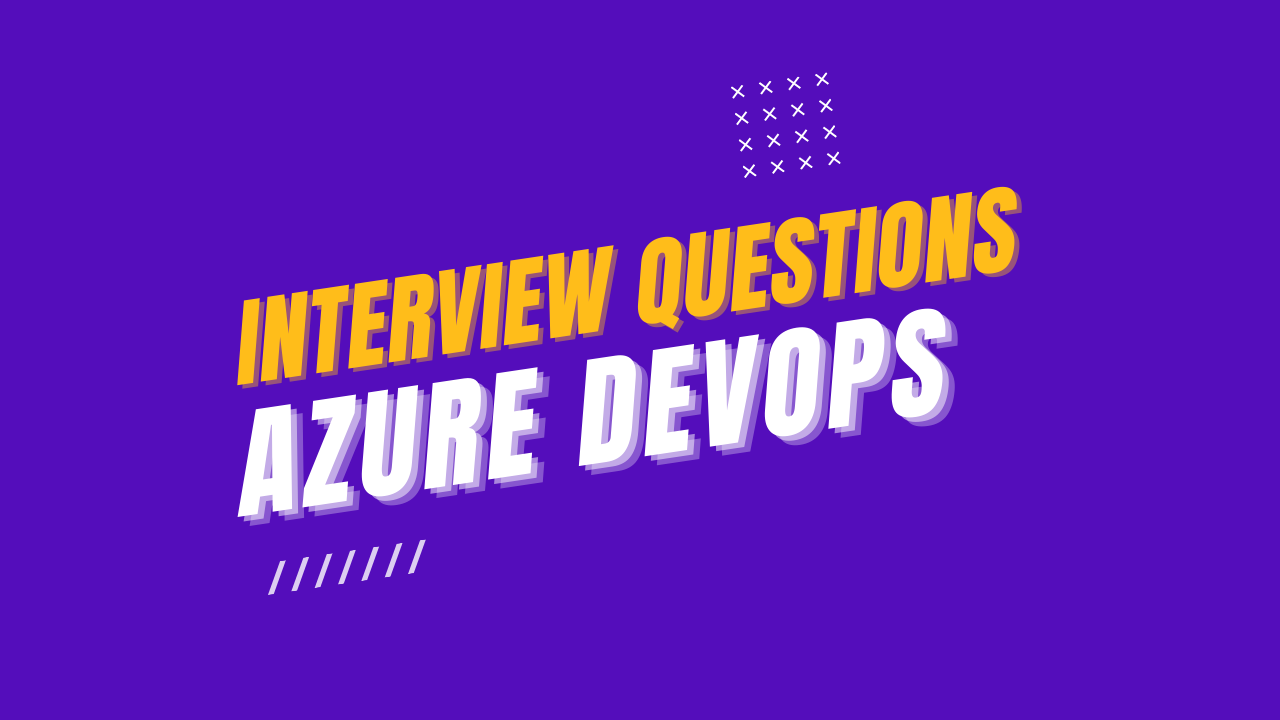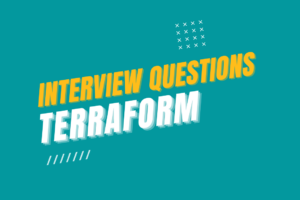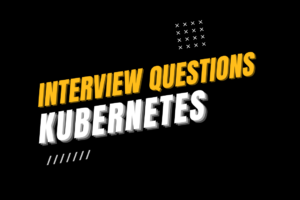
Azure DevOps Interview Questions
[vc_row][vc_column][vc_tta_accordion][vc_tta_section title=”1. What is your understanding of Azure DevOps?” tab_id=”1643321237542-13f508dd-6e82″][vc_column_text]Although it might seem like a simple introductory question in an interview of any stage, interviewers will often ask this to gauge what you actually understand about DevOps as opposed to how well you’ve learnt a definition of it.
At its most basic, DevOps is a paradigm shift that marries the development and operation teams within an organization and is a platform that speeds up processes to do with the delivery of applications and software services.
As well as a sound understanding of what DevOps is at a basic level, interviewers will be looking for something extra to sufficiently show what your experience level using DevOps is. This could be an example of a successful project you worked on with it, going into detail how it was used, or even how you were able to use it to overcome a problem within the existing IT strategy and systems.[/vc_column_text][/vc_tta_section][vc_tta_section title=”2. Why would you use DevOps? ” tab_id=”1643321237552-17d0ffef-fae7″][vc_column_text]This is perhaps one of the most common DevOps interview questions you can expect to be asked, so having a great answer prepared is sure to put you in good stead here. It’s important that you don’t simply reel off a list of uses, but rather have some examples of corporations that have implemented DevOps and benefited from it to back up your answer.
We recommend starting off by explaining the general market trend and discussing how DevOps gives companies the chance to implement small features that can be introduced to customers via smaller release trains, rather than overwhelming them with larger sets of features. You should then look to add real-life success stories of using DevOps.
For example, instead of just telling the interviewer that DevOps helps organizations to deliver smaller features with improved efficiency and speed, you could also talk about Google and Amazon’s success with DevOps, and in particular, what specific DevOps feature was most helpful for them.
As long as you are explicit about the categories that DevOps use cases can be divided into—such as planning, code and release management, and building and testing—and are able to talk confidently about these, you will be sure to impress with your response. [/vc_column_text][/vc_tta_section][vc_tta_section title=”3. What are the top DevOps tools and which have you worked with? ” tab_id=”1643321307228-0b3c973e-5435″][vc_column_text]When answering this question, it’s important that you at least mention the following tools, even if you don’t yet have experience with all of them:
- Git: Version control system tool
- Jenkins: Continuous integration tool
- Selenium: Continuous testing tool
- Puppet, Chef, Ansible: Configuration management and deployment tools
- Nagios: Continuous monitoring tool
- Docker: Containerization tool
Any others you mention will be a bonus, but it’s most important to cover the above. To add depth to your answer, it’s crucial that you explain what experience you have with each of the main DevOps tools. If you’re proficient in all of the above DevOps tools, be sure to tell the employer that you’ve worked with all of the above, and as a result are able to deploy this software easily, reliably, and correctly.
Should you only have experience in a handful of the top DevOps tools, don’t panic! Be open and honest about what you actually have worked with, and let interviewers know which tools you specialize in, while providing a brief overview of the others you recognize to be important. Explaining how you’re working towards developing your skills with other DevOps tools will get you extra credit too; employers love to hear how dedicated you are to upskilling and learning new things. [/vc_column_text][/vc_tta_section][vc_tta_section title=”4. What are the main advantages of using DevOps? ” tab_id=”1643321352420-2ce4f580-0801″][vc_column_text]Your answer to this type of question should focus on two different aspects: technical and business benefits. In terms of the technical benefits, the interviewers will be looking for you to explain how DevOps supports continuous software delivery, more efficient problem-solving, and makes any problems that do arise less complex to fix. Bonus points if you’re able to mention how these feed into your experience of using DevOps.
As for the business benefits of DevOps, you’ll want to mention how it delivers features more efficiently, as well as providing more stable operating environments and gives companies more time to add value, rather than spending it maintaining or fixing problems. [/vc_column_text][/vc_tta_section][vc_tta_section title=”5. Tell me about your experience and expertise working on the software development and technical operations sides of a business ” tab_id=”1643321353641-b358ef39-c304″][vc_column_text]Plainly and simply, this question is looking for your experience level and how you have worked with the two sides of DevOps. Demonstrating your flexibility while working within an enterprise is key here, so be sure to detail if and how you switched between different roles as this shows more versatility than your typical DevOps role.
For example, if you drifted from the typical business-critical online environment and got to be more hands-on with on-call duties, make sure you highlight this to your interviewer. Similarly, detail any experience you have with deploying particular continuous DevOps software to show your level of skill. [/vc_column_text][/vc_tta_section][vc_tta_section title=”6. Can you explain a case study of where DevOps has been used in industry? ” tab_id=”1643321401227-bf252eab-2e42″][vc_column_text]With the tech landscape constantly evolving, it’s important that an employer knows you’re keeping up to date with industry news and utilizing it in your own learning and development. This type of question aims to delve deeper than your own experience working with DevOps, and instead, looks at what you might have learnt from how others operate.
There are so many great companies you could talk about for this question, including the likes of Amazon who introduced DevOps to overcome monolithic architecture, moving from physical services to cloud-based AWS. Similarly, you could discuss how Etsy beat two-week long deployment rates by bringing in a team to adopt DevOps practices which meant they could begin deploying services 50-100 times a day.
Whatever example you use, make sure you have a great understanding of the processes the company initially used and the associated problems that arose from these, and finally how they used DevOps to solve this. If they introduced DevOps a while ago, the way they use it may now differ to what they used it for at the beginning, so getting up-to-date information will boost your answer to the next level. [/vc_column_text][/vc_tta_section][vc_tta_section title=”7. What is continuous testing and what is the top DevOps tool for achieving it? ” tab_id=”1643321424878-82ff5f24-3900″][vc_column_text]When answering this question, it’s crucial that you’re able to highlight, or at least show understanding, that DevOps is not about tools, but rather it focuses on culture changes, automation and the people affected. Instead, focus on how automated testing (via script writing that executes the testing) helps to motivate frequent releases.
Although many opensource tools can help achieve continuous testing in DevOps, there are a couple specific ones your interviewer might be listening out for. These include Selenium, JMeter, Cucumber, and more. [/vc_column_text][/vc_tta_section][vc_tta_section title=”8. What is the difference between DevOps Services and DevOps Server? ” tab_id=”1643321451088-ad2f31d9-422e”][vc_column_text]This is one of the trickier Azure DevOps interview questions you could be asked when you sit down with an employer and will really reveal your understanding of DevOps. You should begin by highlighting how DevOps Services is the cloud service for Microsoft and is scalable and reliable. In comparison, you’ll want to explain how DevOps Server is on-premises and is built on the back end of an SQL Server.
While they have relatively similar functions, DevOps Server has the added benefit facilitating access to SQL Server reports to integrate with other DevOps tools. So, while touching on the main difference will no doubt be a sufficient answer, to win yourself some extra acclaim, giving an overview of the benefits of each will demonstrate a deeper knowledge. [/vc_column_text][/vc_tta_section][vc_tta_section title=”9. What are containers in DevOps, and which container platforms does DevOps support? ” tab_id=”1643321496165-a01b6a46-3415″][vc_column_text]This is quite a general question asked within a DevOps interview, so it’s certainly worth getting to grips with. The role of containers is to provide a single place to store software code, configurations, and dependencies. If you’re looking to build on your answer further, you could mention how it’s possible for multiple containers to run simultaneously on a single machine. Because of the important role they play, containers can help in more efficient and reliable deployments.
Azure DevOps provides container support via a few platforms including Docker and Asp.Net, as well as Kubernetes Services and more. So, be sure to mention at least a few of these to complete the question. [/vc_column_text][/vc_tta_section][vc_tta_section title=”10. What are Azure Boards and why would you use them? ” tab_id=”1643321520400-87c16639-f586″][vc_column_text]Within DevOps there is a service known as Azure Boards. The main aim of Azure Boards is to assist with the management of workload in various software projects. For this question, we would recommend giving a great, concise and clear definition of Azure Boards and then discussing a few of its main advantages.
For example, you could highlight how it has in-built tools for social communication, or how it is easy to customize as and when you need to. Perhaps one of the main advantages to note is its seamless integration with Microsoft Office applications. Giving examples of how you’ve worked with Azure Boards and anything notable you found from working with it is also a sure way to impress your interviewer. [/vc_column_text][/vc_tta_section][/vc_tta_accordion][/vc_column][/vc_row]



